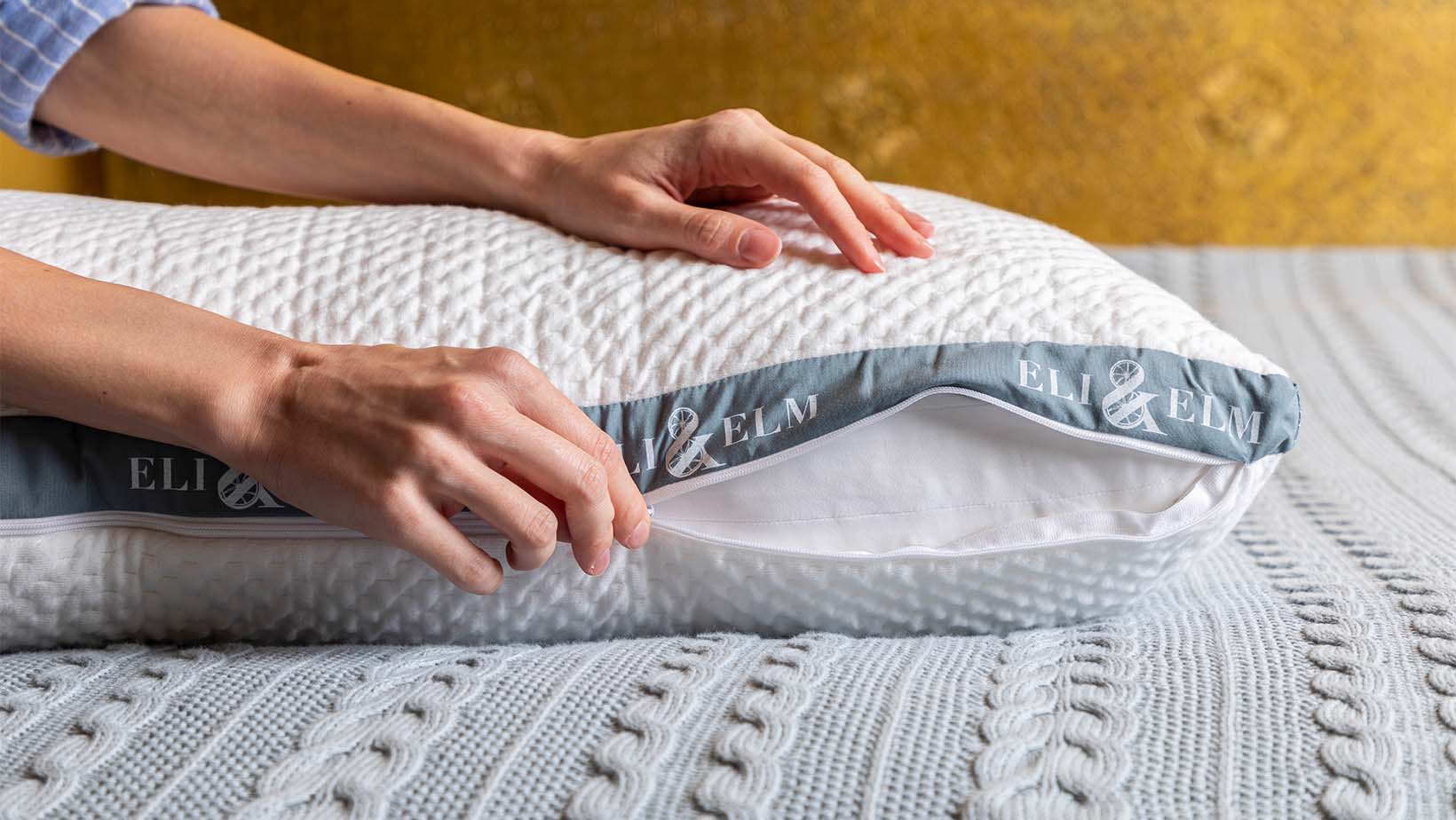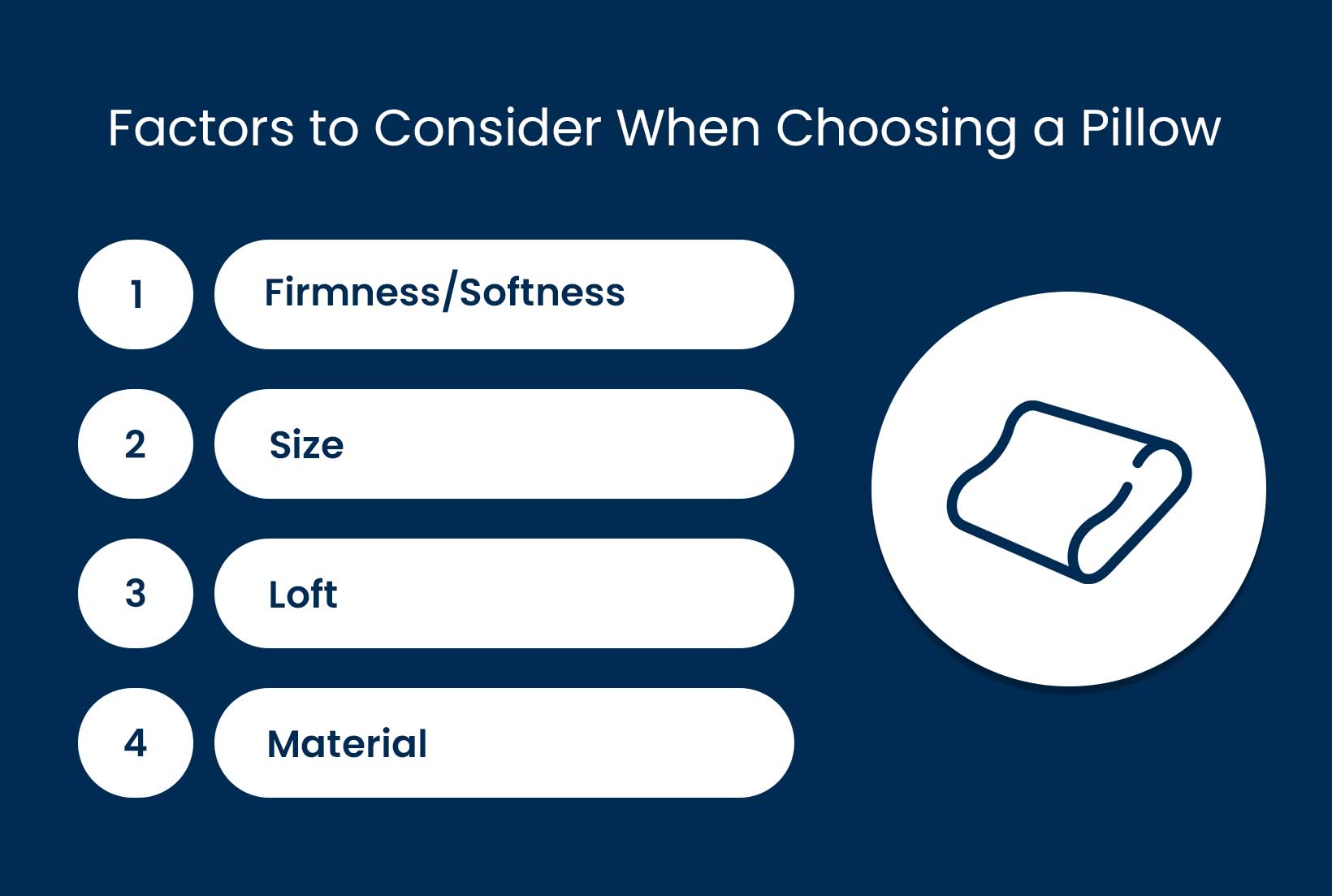Is your pillow hurting you or your sleep? Picking out random pillows might not be the bargain you thought it would be. So, if you have trouble shutting your eyes at night, your pillow and how you sleep on it might have something to do with it. All the ways you twist and bend during your day leading up to bedtime plays into the sleeping process too. Choosing the right pillow, putting an end to some common sleeping habits and knowing how to sleep on your pillow and your mattress before you hit the hay can help you get your best night’s rest. Let’s discuss how using the wrong pillow might ruin your sleep and wake you up in pain.
How Does it Cause Neck Pain?
We have so many bad habits during the day that cause neck, back and spine pain. Slouching while working, walking or eating is one. Not to mention constantly looking down at your smartphone or computer can really make your neck ache.
If you wake up with a stiff and sore neck every morning, then either the pillow you're using is wrong or the way you are using it is wrong. Regular pillows might not provide the level of support you’d need. For example, side sleepers need a soft medium firm pillow with a high loft to support their neck and head.
Spending 7-9 hours in an unhealthy position might soon lead you to chronic neck problems. Pillows specifically designed to curb such issues should be used such as latex pillows, feather pillows, buckwheat pillows, and other viable options. Additionally, it would be very effective if you adapt proper sleeping positions. If you are a back sleeper then you can place a pillow underneath your pelvis to align your spine properly. Side Sleepers can place a pillow between their knees to maintain a comfortable balance between their head, neck, and spine.
Top 5 Popular Pillows in the Market
| Type of Pillow | Material | Suitable for |
|---|---|---|
| Cotton Pillow | 100% cotton filling | Stomach sleepers |
| Latex Pillow | Natural or synthetic latex | All sleep positions |
| Polyester Pillow | Synthetic polyester filling | Back and side sleepers |
| Memory Foam Pillow | Polyurethane foam | Side and back sleepers |
| Buckwheat Pillow | Buckwheat hull filling | Side and back sleepers |
How Does it Cause Back Pain?
Every time you wake in pain in the morning it ruins your entire day. A bad back pain will not even let you do your basic chores. Even raising your hand up can be a herculean task! When you ignore your pillow and your sleeping position it might end in quite bizarrely. A pillow too soft or thin might sink your head and neck too much into it which creates a lot of pressure in the lumbar, resulting in back pain. On the other hand, pillows that are too thick will hold your head too high up which will misalign your neck with your back. The muscles in the lower back will try to overcompensate any misalignment and will take the hit. Stomach and side sleepers tend to experience more low back pain when sleeping on a pillow that doesn’t cradle the head and neck in proper alignment. Back sleepers may experience low back pain if their knees aren’t supported with additional support pillows.

What Causes Stiffness?
There are days when you can’t even move out of your beds. You feel stuck, dragged, and constantly tired. Every inch of your body feels the stiffness no matter the affected area. Muscles when stretched unnaturally for a long period and contracted when released, cause your body to be stiff. The simple reason is lack of proper support to the neck and head. The neck and back muscles stretch out of alignment during the night rather than be held in a neutral position.
When you wake up, stretched neck muscles may contract and tighten, causing the neck and back to feel stiff and tense. Stiffness can range from mild—where it disappears after a few morning movements—to severe—where it continues well into the day, even with lots of movement. Ordinary pillows will in no way give the support you need to balance your body, if anything they will disrupt your posture even more while sleeping.
How Does a Bad Pillow Cause Headaches?
There is nothing more annoying than a nagging headache in the morning. Literally nothing! You fail to carry on your day the way you want and do not wish to lift a finger after that. There is no one reason we can put a pin on for a headache. But mostly headaches are a result of neck pain and muscle tension. There is a group of muscles that interact in the base of the neck, called suboccipital muscles, which directly links the nerve to the skull along with the center of the head and the eyes. Often due to poor alignment these muscles tense up and transfer pain to the head, resulting in severe headaches.
Pillows that are too high can cause the head and neck to round forward adding tension to the suboccipital neck muscles. Too much tension in these muscles may result in you waking up with a headache or developing a headache in the morning once you’ve gotten out of bed.
How Can It Lead to Digestive and Breathing Problems?
There are certain issues that make having a good pillow of utmost importance. Sleep Apnea is a sleeping condition where you experience constant disruptions in breathing while sleeping. A wrong pillow on your bed can really aggravate this situation as it may not align your neck and head in a proper angle which in turn will block the airways between the throat and palate.
People with acid reflux might be affected by a wrong pillow too. Acid reflux is weakening of muscles between the throat and stomach, causing the acid to clump into the mouth and throat. This can lead to a really bad painful sensation that obviously won’t let you fall asleep. Pillows that are too thin don’t hold your head and neck high enough to prevent the acid backwash from reaching the chest and throat.

Pick the Pillow of Your Dreams
When on the hunt for the perfect pillow, you should consider what type of sleeper you are. Knowing your dominant sleep style (side, back or stomach) will point you towards the ideal pillow.
How about sleepers who find themselves very hot at night? Material of your pillowcase should be made with a breathable fabric – thick cotton or copper – to allow heat to flow from your head into the atmosphere.Back sleepers should seek a thinner, flatter pillow to align the neck with the spine. For sleepers who already experience neck pain, we suggest they opt for a more supportive pillow. Side sleepers, meanwhile, need a thicker, firmer pillow. Rule of thumb is to find a pillow as thick as the distance between your shoulder and ear. Stomach sleepers will benefit from a soft pillow...if they even want a pillow under their head at all. The latter can place a soft pillow under their stomach and pelvis for proper alignment.
Sources:
Mirror: You've been using your pillow wrong - sleep expert urges people to make beneficial change
Mattress Clarity: 3 Ways Your Pillow Affects Your Health
Relax The Back: HOW TO CHOOSE A PILLOW FOR YOUR SLEEP NEEDS
Better Homes and Gardens: 3 signs that you’re sleeping on the wrong pillow





















